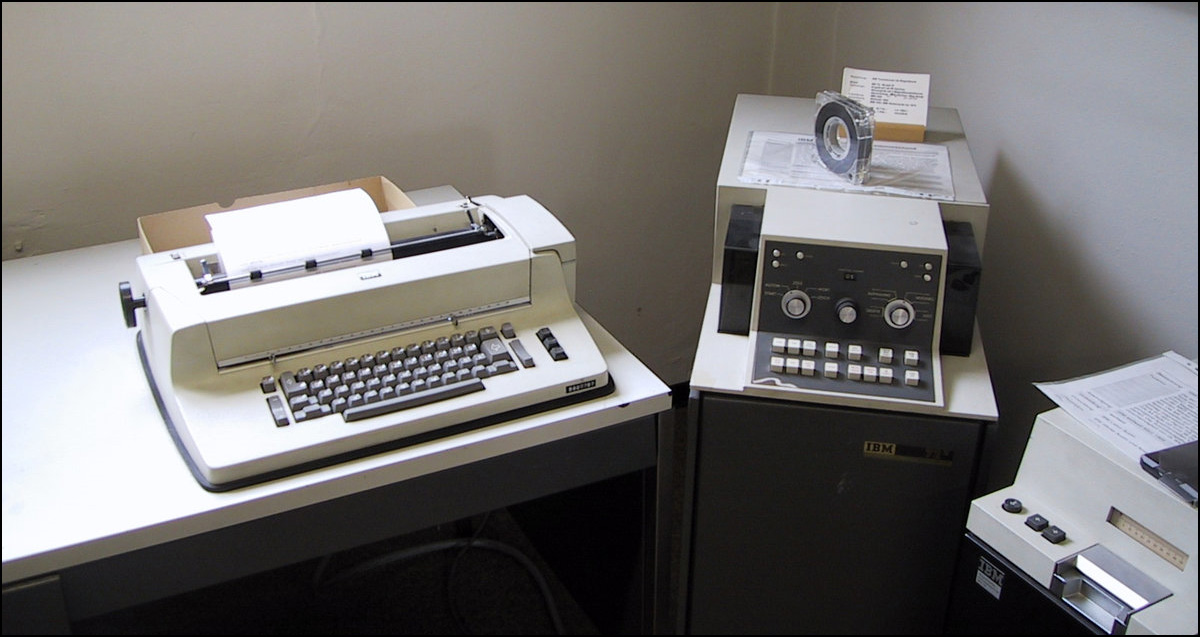Jay Nordlinger points me to an obituary in the New York Times a couple of days ago:
Evelyn Berezin, a computer pioneer who emancipated many a frazzled secretary from the shackles of the typewriter nearly a half-century ago by building and marketing the first computerized word processor, died on Saturday in Manhattan. She was 93.
….In an age when computers were in their infancy and few women were involved in their development, Ms. Berezin (pronounced BEAR-a-zen) not only designed the first true word processor; in 1969, she was also a founder and the president of the Redactron Corporation, a tech start-up on Long Island that was the first company exclusively engaged in manufacturing and selling the revolutionary machines.
….Ms. Berezin called her computer the Data Secretary. It was 40 inches high, the size of a small refrigerator, and had no screen for words to trickle across. Its keyboard and printer was an I.B.M. Selectric Typewriter with a rattling print head the size of a golf ball. The device had 13 semiconductor chips, some of which Ms. Berezin designed, and programmable logic to drive its word-processing functions. Later versions of Redactron word processors came with monitor screens for text, separate printers, greater memory caches, smaller consoles, faster processing speeds and more programmed features to smooth the writing and editing tasks.
This…does not compute. The Data Secretary was functionally identical to the IBM MT/ST, introduced in 1964. Like the Data Secretary, it was not a modern word processor that allows you to type an entire document and then print it out. You typed one line at a time on an IBM Selectric typewriter—fixing typos along the way—and then saved each line on a device that used quarter-inch magnetic tape. When you were done, you put a blank piece of paper in the typewriter and told it to spit out all the lines you had typed. Here’s a picture:

If all this sounds like a pain in the ass, I assure you it was. I used one of these devices—nicknamed Molly—as the front end of an IBM typesetting machine—nicknamed Hal—back in the 70s to publish the student newspaper at Caltech. However, I also occasionally used it in standalone word processing mode to write term papers.
Evelyn Berezin’s Data Secretary was the first computerized word processor only if you use the word “computerized” very narrowly: the MT/ST was originally electromechanical and only later used circuit boards in its main processing unit. The Data Secretary used ICs from the beginning.
I understand that the Times obit section is trying to be more conscious these days of women who didn’t get credit for their accomplishments back in the day. In this case, however, they’ve overreached. Berezin didn’t invent the concept of word processing; or the term “word processing”; or the first actual word processing machine. IBM did all those things. She did, however, invent the first standalone word-processing machine driven by electronic components. It was an important evolution that lowered the cost of word processing and made it more reliable,¹ but it doesn’t mean that Berezin “built the first true word processor.”
¹The MT/ST broke down constantly. I became very familiar with the IBM service folks during the two years I made heavy use of Molly.














